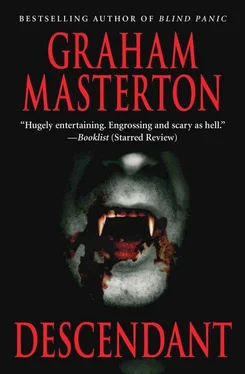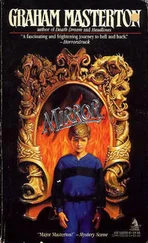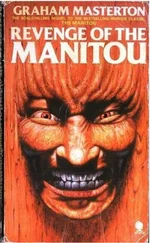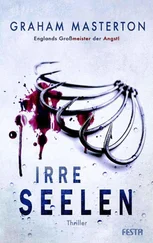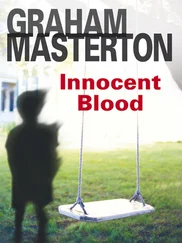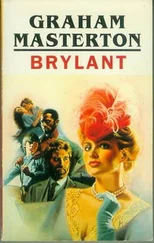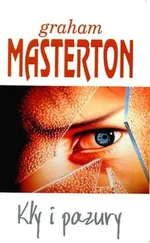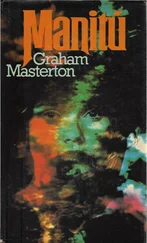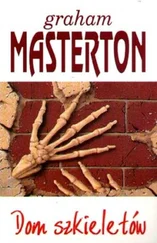The postcard was dated June 12, 1961, so it had taken nearly three months to reach me. Presumably it had been vetted by MI6 and then by US counterintelligence before it had been decided that it was harmless, and that they could send it on.
The writing was loopy, in smudged purple ink. “ Dear Jim, Even after all this time I still think of you. I am so sorry for the way things turned out. Poor Bullet died late last year. I would love to know how you are. Yours, Jill .”
I felt as if I had been punched in the stomach, very hard. I sat down at the kitchen table just as Mandy came in, tightening the belt of her robe. “Jim? Are you OK?”
“Sure. I’m fine.”
“I was thinking maybe we could go to Shakertown today. You’ve never been, have you? It’s really fascinating. Actually, I have an unnatural craving for a slice of their lemon pie. I hope I’m not pregnant.”
“Not today, Mandy, OK? Something just came up.”
She came over and sat on my lap and kissed my ear. “I certainly hope so,” she said, suggestively.
It was Jill herself who opened the front door. Her hair was different, flicked up like a tulip, and she was wearing a tight white sweater and a russet-colored tweed skirt. She looked even more beautiful than I had remembered her — dark-skinned, with those dark feline eyes, and those full, suggestive lips.
“ Jim! ” she said, in total shock, and clapped her hand to her mouth.
“Hey, I got your postcard,” I told her, holding it up. “I thought of writing back — but then I thought — nah, I’ll come over to see you instead.”
She rushed out of the doorway and threw her arms around me and kissed me. I felt like I was in one of those ridiculously romantic TV commercials. But she felt so good, and she smelled so good, and she seemed to be so delighted to see me, that I really didn’t care.
“Oh God,” she said. “I thought I was never going to see you again.”
“Oh, yeah? I hope you didn’t think you could keep me away that easy.”
“Why don’t you come inside? Mummy and Daddy are both out for the day. When did you arrive?”
I followed her into the house. Outside the living room window, a gardener was raking up beech leaves from the lawn and burning them on a bonfire. There was a melancholy smell of smoke in the air.
“Would you like a cup of tea? Or a drink, perhaps?”
I took hold of her hands and looked at her. I couldn’t believe how gorgeous she was. What’s more, I couldn’t believe how excited she was to see me, after more than four years. After all, I was forty-three now, while she couldn’t have been much older than thirty-one.
“I could murder a beer, if you have any beer.”
“I think Daddy’s got some Mackeson’s.”
We sat together on one of the flowery-covered couches. “Are you still married?” she asked me. “You’re not wearing a wedding ring.”
I told her about Louise, and she nodded seriously. “I’m so sorry,” she said. “But maybe it was all for the best.”
“Maybe. What about you? Nobody swept you off your feet yet?”
“Not the way that you did.”
“I’m flattered.”
“I’m not flattering you, I’m telling you the truth. I’ve never been able to get you out of my mind.”
I sipped my stout. There was something in her intonation that made me think: This isn’t just about sexual attraction. This is something more .
“I suppose there was some unfinished business between us,” I said, warily. “A few loose ends that needed to be tied up.”
“I know what happened to Duca,” she said.
“So they told you.”
She reached out and gently stroked the twisted burns on the left side of my neck. “You were very brave,” she said. “There aren’t many men who would have the courage to face up to a creature like that.”
I didn’t say anything, but watched her eyes.
“You’re different from other men. That’s why I couldn’t forget you. That night we slept together. I felt it. And then, when I saw you and Duca together. ”
“What happened, Jill? What happened that day in the surgery? What did Duca do to you?”
She turned her face away, in profile. “Nothing. He didn’t do anything. It didn’t do anything.”
“But afterward, you were dizzy, and you were sick. Duca must have done something. Did it cut you? Did it scratch you? Did it inject you with any of its blood?”
“I was frightened, that’s all. I was suffering from shock. I didn’t have any experience of Screechers, not like you. I simply couldn’t take any more.”
“OK,” I reassured her. “I’m sorry. I didn’t mean to give you the third degree. It was just that I was worried about you.”
“I know,” she said. “But you didn’t have to worry. And you don’t have to worry now, ever again.”
I stayed in England for another five weeks. Jill and I saw each other nearly every day. We went walking in the parks, we visited the National Gallery, we sat in pubs talking to each other as if it would take a whole lifetime of talking for us to catch up.
We made love, in my hotel room, with the gray afternoon light falling through the net curtains, and the sheets twisted beneath us. Afterward she would lie next to me and stroke my back with her fingertips, so lightly that my nerve endings tingled. I could have stared at her all day, with her broad, angular shoulders, and her huge rounded breasts, and her nipples that crinkled like raisins.
One morning, though, I realized that this couldn’t continue. It was a dream, not reality, and I couldn’t ask her to spend the rest of her life in a dream.
“I have to go back to the States,” I said.
“That’s all right. I’ll come with you.”
“You can’t. I’m sorry.”
“But why not? I want to stay with you forever!”
“You can’t, Jill. It’s too dangerous. You shouldn’t even be here with me now.”
“But you destroyed all the Screechers, didn’t you?”
“Maybe I did. Maybe I didn’t. One thing’s for sure — I didn’t manage to dispose of Duca’s body. Not only that, Duca went into the harbor, and Screechers are always revived by water. The Belgian resistance made that mistake during World War Two. They shot Screechers and threw them into the River Scheldt. They might just as well have given them the kiss of life.”
Jill sat up, naked, and put her arms around me. “I’m not frightened. I want to come with you.”
I looked at her closely. She was absolutely flawless, and I was in love with her.
“All right,” I said, at last. “So long as you know what the risks are.”
We were married at Kenwood Heights Christian Church on Saturday, April 28, 1962. It was a bright, warm day, and pink cherry blossoms blew over us as we left the church.
I saw a man in a long dark coat standing on the opposite side of the street as we climbed into the wedding car. His face was white and he looked strangely two-dimensional, more like a black-and-white photograph than a real person. I looked at him and he looked back at me, but there was no way of telling if he was a Screecher or nothing more than a curious passerby. But who wears a winter overcoat, on an April afternoon, in Louisville?
The years came and went, and we lived the kind of life that most everybody lives in Louisville — playing golf, eating out at Mike Linnig’s Place, going to Churchill Downs in May and betting against the crowd. I was William Crowe and Jill was Jill Crowe and we were happy. We bought a black Labrador and called him Ricochet.
In March, 1965, Jill gave birth to Mark. He was a quiet, introspective boy who always preferred playing on his own, but he was very clever, and by the time he was eleven years old he could play the piano as well as his grandfather.
Читать дальше
